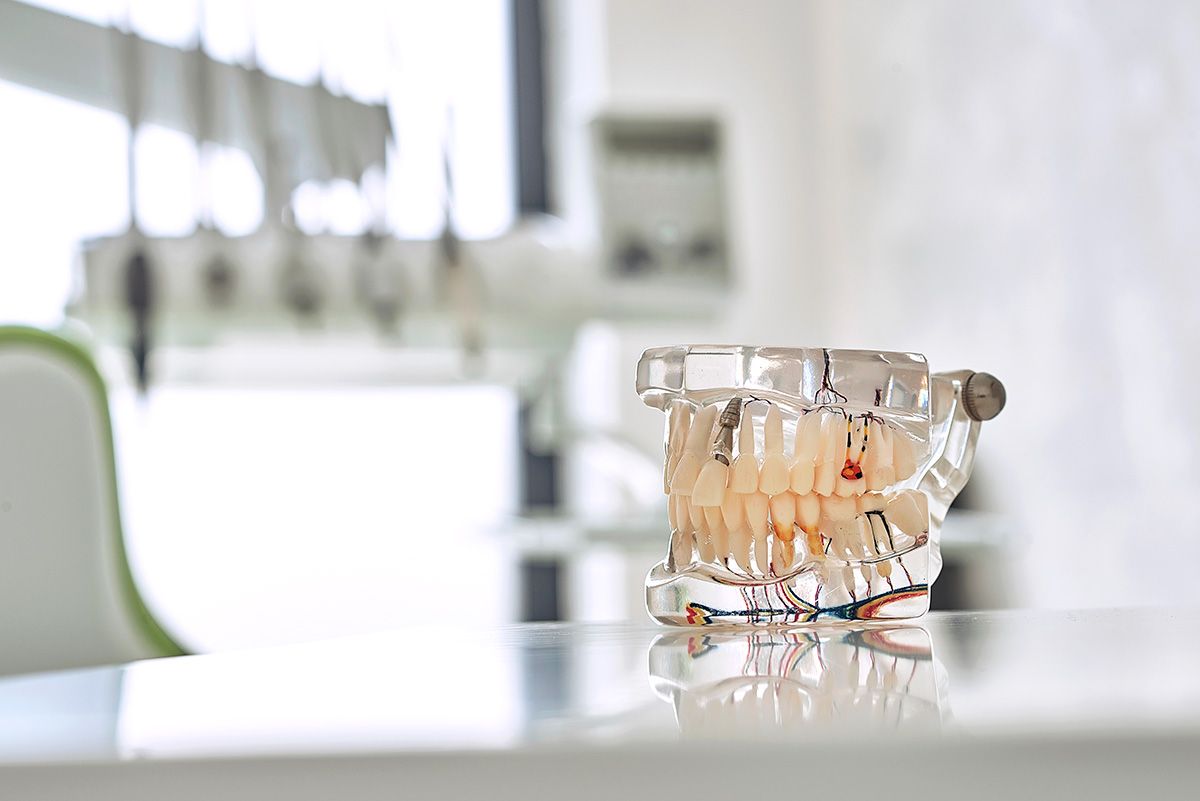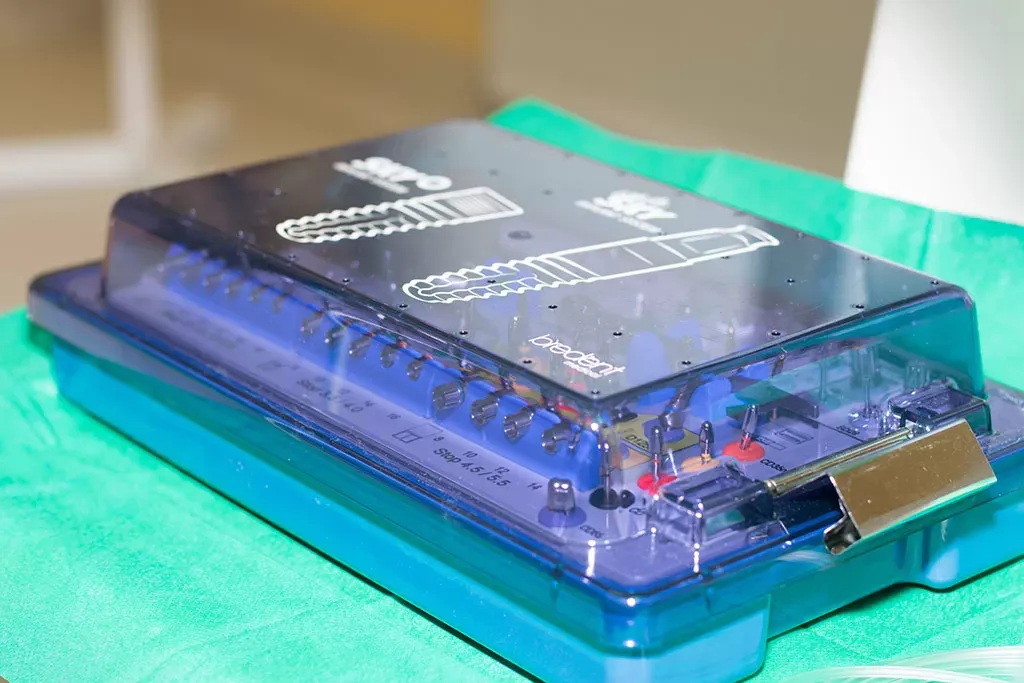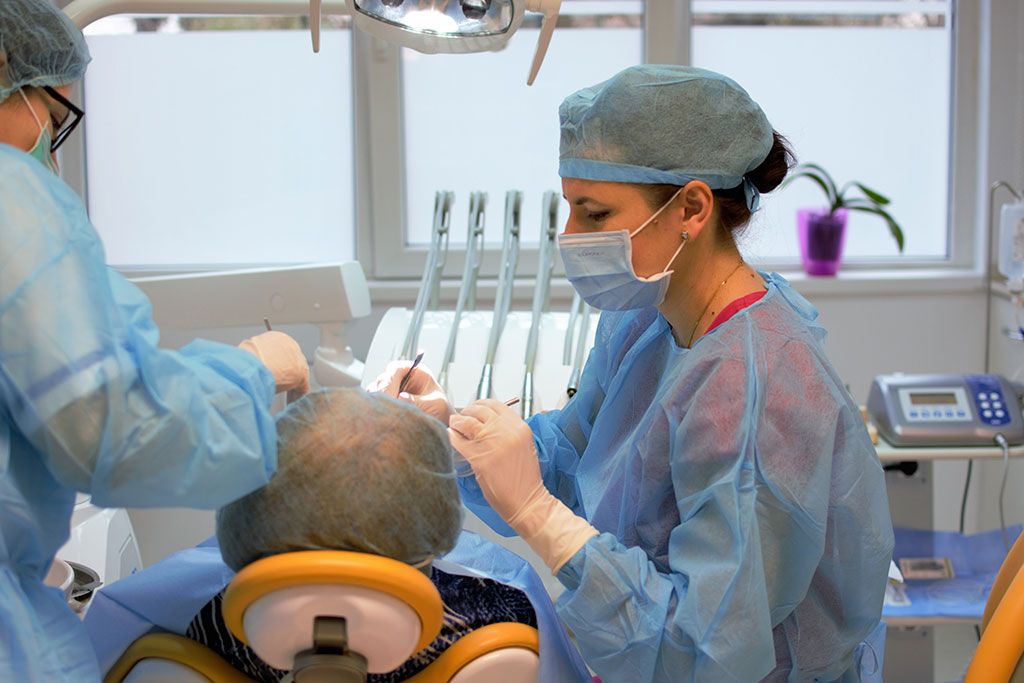DENTAL IMPLANT
Patients who come to Ogodent Ploiesti consistently opt for premium dental implants from Bredent due to their superior quality and array of benefits:
- Long-term strength
- Natural tooth feel
- Preservation of bone volume
- Biocompatibility
- Exemplary aesthetics
- Teeth adjacent to an edentulous gap remain intact
About dental implants
When it comes to dental implants in Ploiesti we are the dental clinic that offers patients modern, effective and durable solutions. The need for a dental implant arises both in terms of oral health and avoiding some of the risks associated with tooth loss, as well as from an aesthetic point of view.
Dental implants replace the root of the lost tooth and prevent the migration of neighbouring teeth, allow fixed prosthetics in situations where mobile prosthetics would have been required, stop the process of bone atrophy, prevent gum recession and bone resorption and play an essential role in dental aesthetics.
Patients who come to Ogodent Ploiesti always choose premium dental implants from Bredent because of their quality and advantages:
- Long-term strength
- Natural tooth feel
- Preservation of bone volume
- Biocompatibility
- Exemplary aesthetics
- Teeth adjacent to an edentulous gap remain intact
These are undeniable benefits for dental implants that Dr Cristina Coman, Dentist Specialist in Periodontology and Oral Implantology, apply at the dental clinic Ogodent Ploiesti, respecting all sterile conditions.
Thus, if you are looking for a dentist for dental implants in Ploiesti, we are looking forward to welcoming you to Ogodent Dental Clinic. Precision, experience and attention to detail perfectly complement your dental implant treatment plan in Ploiesti.

DR CRISTINA COMAN
Dental specialist Implantology and Periodontology
Useful Information
What are dental implants?
Dental implants are screw-like devices made of high-purity titanium, a perfectly biocompatible material that allows for osseointegration.
Osseointegration is bone healing around the implant after insertion. Implants are inserted into the jawbone or mandible, serving as artificial roots on which prosthetic work (artificial teeth) will later be made.


Steps from treatment to implant
Consultation to determine a treatment plan, take a panoramic X-ray and assess bone size.
When bone supply is insufficient bone height and thickness can be corrected by bone additions before dental implant.
In the case of pathological formations, the insertion of dental implants will be done after their removal (cysts, granulation tissue, etc.).
In the case of various treatments, the dental implant can be inserted after their discontinuation under the supervision of the specialist.
- The implant insertion operation is a painless surgery performed under local anaesthesia.
- The sutures are removed 10 days after the operation.
- The complete healing period of the bone varies between 3 and 6 months.
- After the bone has healed, the implant head is uncovered and a healing cap is fitted to allow the gums to heal for 1 week.
- The implant is fitted with a bridge and an impression is taken for the final work.
- The final work takes 2-3 weeks depending on its complexity.

Frequently Asked Questions
Periodic inspection for prosthetic work on implants
In implant prosthetics dispensing is mandatory. Periodic checks will be carried out in the clinic as follows:
- The first check of the work is done one week after the end of the treatment.
- Subsequent checks are carried out at one, three and seven months after the fixation of the work, then annually.
This is the only way that an implant-supported prosthetic restoration can function for a long time, avoiding several complications that can arise. Pre-operative hygiene of the oral cavity in the office (scaling and airflow) is indicated. This protocol ensures a clean and germ-free operating field.
Post-operative:
- mouthwash with chlorhexidine 0,12% alcohol-free is recommended.
- gentle cleaning of teeth and gums with a soft toothbrush do not touch the sutures eliminate dairy products, alcohol, hot foods and hard foods from the diet
- do not smoke during healing
- anti-inflammatories for sensitivity, pain and post-operative oedema
- apply cold compresses to the inflamed area for post-operative oedema within 3 days of surgery
- observing the medication prescribed by the implantologist

We hope the information provided has been helpful. We look forward to welcoming you to our clinic, where we can work together to determine the best treatment solution for your needs.